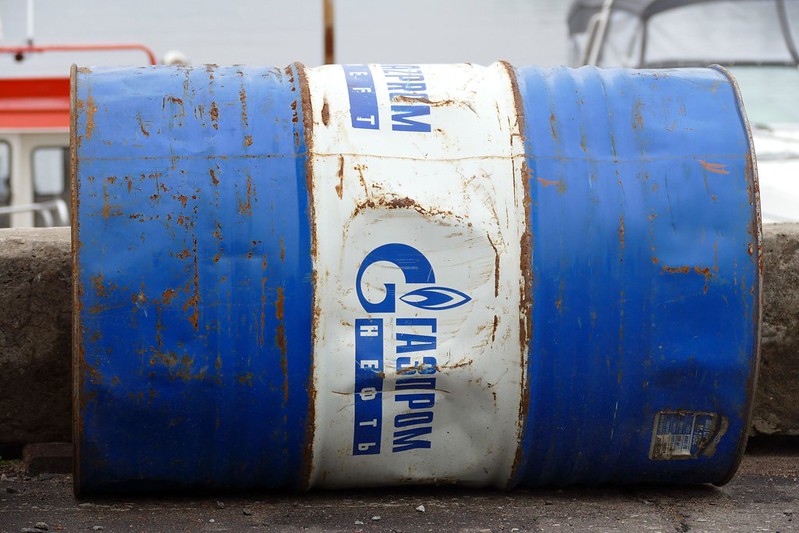The uncertain future of the Russian economy
Russian and ex-Soviet economists abroad question Moscow's ostentatious optimism about a great development through relations with the East. But oil companies are increasingly burdened with tax levies to finance the war and increasingly difficult access to new technologies make a general degradation of the economy more evident every day.
Moscow (AsiaNews) - The Eastern Economic Forum was held in Vladivostok a few days ago, at which Putin and regional leaders presented the prospects of great development thanks above all to Russia's relations with the East.
Faced with these proclamations, Russian and ex-Soviet economists abroad are questioning to what extent they can be considered merely expressions of a propaganda façade, and whether Russia is not instead risking a possible catastrophe.
Timofej Milovanov is a professor at the University of Pittsburgh, and was also previously Minister of Economic Development in Ukraine. In Fortune magazine, he contributed to an article discussing precisely the topic of ‘Russian GDP growth and impending catastrophe’, together with Oleg Korenok, a professor at the University of Virginia, and Mikhail Alekseev, who teaches at Indiana University. The authors of the article state that they want to oppose ‘those cynics who create an illusory optimistic picture of an increasingly robust Russian economy’.
In reality, the Russian government is throwing huge sums into military production, taking more and more of the means of development away from the country's real economy. Oil companies are increasingly burdened with tax levies to finance the war, and tax increases are driving inflation rates higher and higher.
The flight of hundreds of thousands of Russian citizens with high levels of specialisation, the lack of investment and the increasingly difficult access to new technologies make a general degradation of the economy more and more evident every day.
What is most worrying, says Milovanov, is ‘economic growth on the basis of non-productive investments’, which are not intended for consumption by the population, and the reserve of the National Welfare Fund is also being depleted.
The situation that has arisen in the Kursk region, with the attack by the Ukrainian armed forces, appears to be a clear sign of the Russian government's inability to assist citizens in need, with the distribution of only symbolic subsidies of 10,000 roubles, a sum that economists describe as ‘truly ridiculous’.
There is no telling how long Putin will be able to put all the money into the war: the availability of cash, which comes mainly from the sale of oil, is one thing; the real state of economic parameters is another. According to the ex-minister, the situation looks similar to the Soviet Union of the 1980s, where the problems piled up without anyone running for cover.
To break this vicious circle, economists say, it would take a shock such as the collapse of oil prices, or a political crisis triggered by currently unpredictable factors. For now, all seems quiet, but ‘you can't put the economy of a country at war on your shoulders without problems,’ warns Korenok.
There is a risk of being deluded by the effect of the ‘sense of mobilisation’, trusting the country's vast resources to finance those who stand to gain by fighting and dying at the front, no one knows for how much longer.
The economy tries to adapt to the sanctions, which are introduced gradually, without striking decisively and without creating panic among the population. Another Russian economist who teaches at Berkeley, Jurij Gorodničenko, described international sanctions as a ‘death by thousands of knife blows’.
Of these blows, the most effective are undoubtedly the attacks on energy infrastructure, and those that restrict international trade possibilities. The pressure on technology companies also has great effects, and above all the impediments to the use of international currencies, dollars, euros and even yuan, hit the mark. Russian earnings from oil were higher this year than in 2023, although not at the levels of the first year of the war, when they had guaranteed huge reserves.
It is also difficult to strike the right balance on the part of the ‘sanctions coalition’, made up of countries that still need large supplies of oil and gas, and end up leaving room for the ‘shadow fleet’ of Russians, who export these raw materials in defiance of all restraint measures.
It is difficult to ‘take Russia by the throat, or perhaps there is no will to actually do it’, comments Milovanov, and only a major change in the macro-economic situation, which would alter the need for energy raw materials, could provide clear results; otherwise everything is postponed to a time that is still very difficult to predict.
Photo: Flickr / Maxence







.png)










